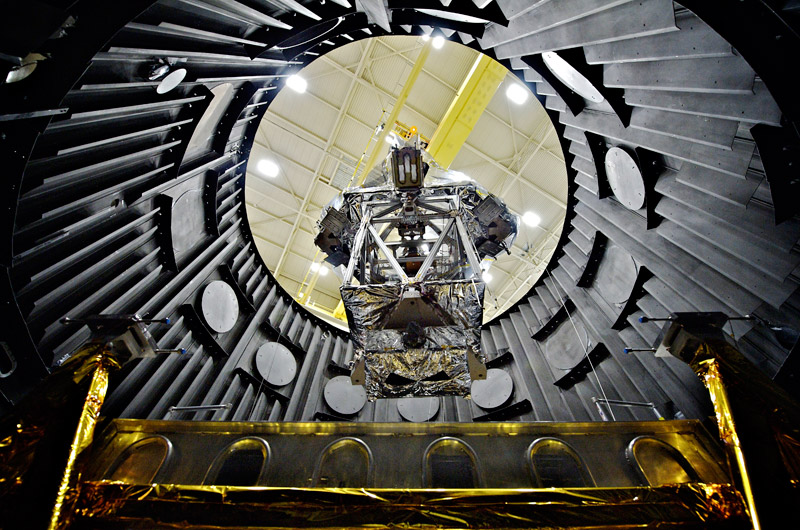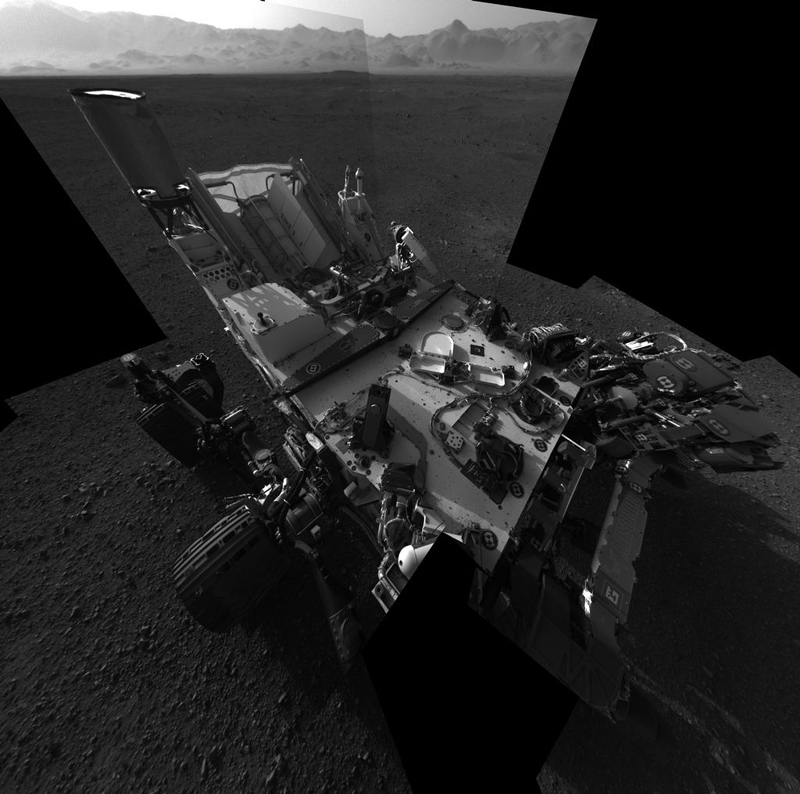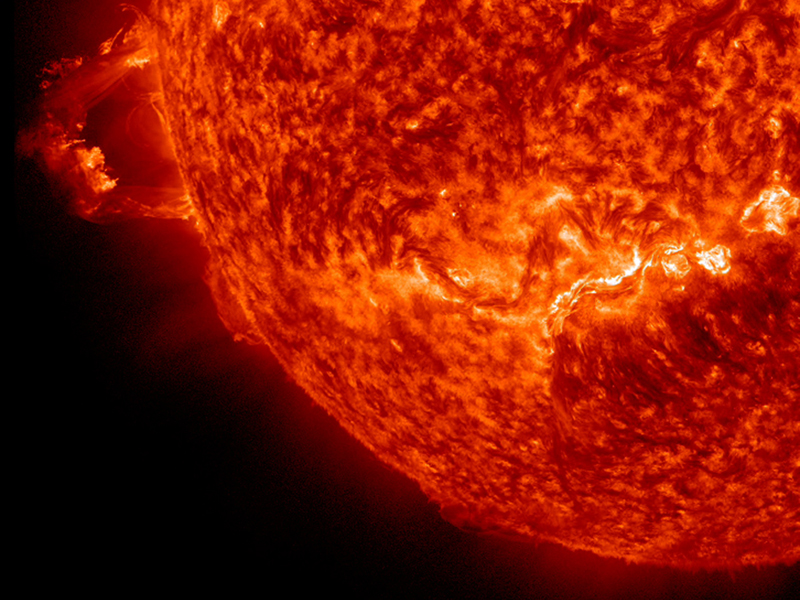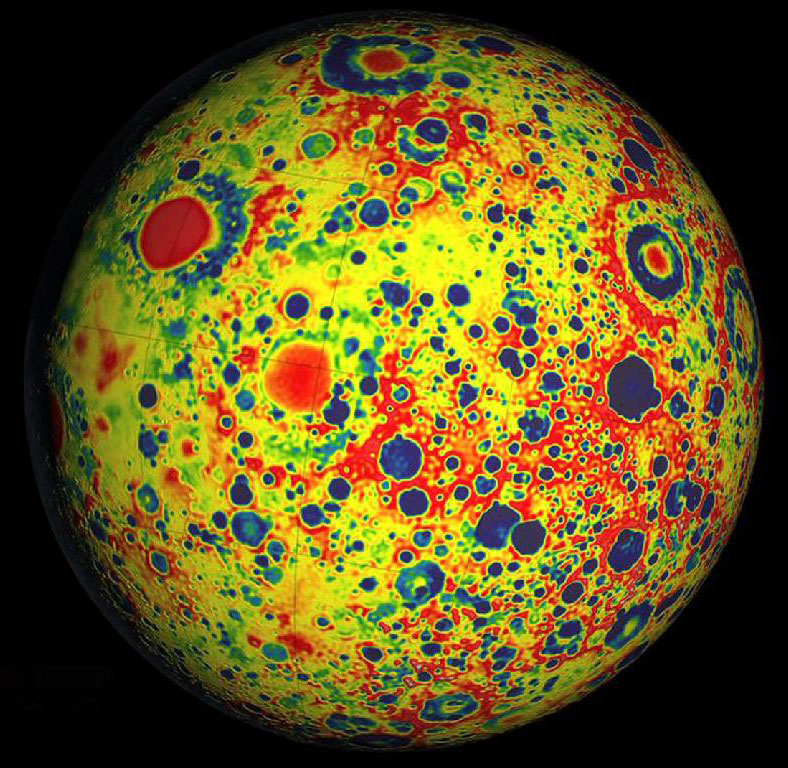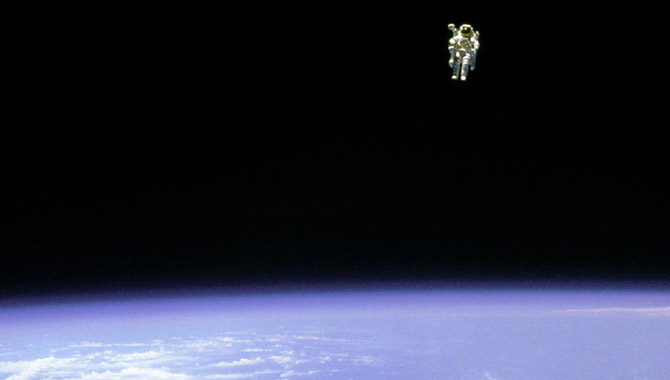
Vol. 5, Issue 9
Where do you go to find what you don’t know?
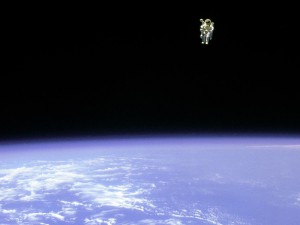
On Feb. 12, 1984, astronaut Bruce McCandless, ventured further away from the confines and safety of his ship than any previous astronaut had ever been. This space first was made possible by a nitrogen jet propelled backpack, previously known at NASA as the Manned Manuevering Unit or MMU.
After a series of test maneuvers inside and above Challenger’s payload bay, McCandless went “free-flying” to a distance of 320 feet away from the Orbiter. This stunning orbital panorama view shows McCandless out there amongst the black and blue of Earth and space.
Photo Credit: NASA
Seven months ago, a member of my organization started an ad hoc series of interviews with various people across the agency that asked one simple question: Where do you go to find what you don’t know?
Intended as an evolving experiment, she shared her findings with me, noting that each interview progressed almost the same way every time. After a pause, her interviewees would respond: networks and online search. Answers varied from there—books, shared drives, libraries—but almost consistently, the responses followed the same pattern.
“The…structure of knowledge at NASA seems very fractured,” one interviewee said. “It presents and behaves more like a bunch of little fiefdoms rather than a coherent presence.” This remark struck me.
While the interviewees all talked about knowledge in very similar terms, they all also spoke about the importance of people-to-people interactions—of walking down a hallway and asking a question, picking up a phone, or even sending an email. Having a network is essential, as is having the capacity to grow that network. Face-to-face integration, impromptu or serendipitous meetings, and exploratory conversations are invaluable and irreplaceable.
On the subject of search, many referred to the almighty Google to characterize what they don’t know and where they go in search of answers. Few responded positively to the online services offered by the agency. Their responses followed suit with a variation on Mooer’s Law: knowledge that is hard to find is knowledge hardly found.
Currently, there are efforts underway to bring to light all of the knowledge efforts across the agency. Since assuming my new role as Chief Knowledge Officer at the beginning of the year, I’ve been impressed by the efforts and offerings at the centers and mission directorates. My organization is collaborating with all the centers and mission directorates to develop a map of the knowledge work currently being done across the agency.
Managing knowledge is not an easy task. As one interviewee remarked, “Rarely can you find a cookbook answer for a vexing problem.” In collaboration with partners across the agency, the federal government, and industry, we are working toward a new level of integration of NASA’s knowledge resources so that our workforce has a better shot at knowing where to go to find what they don’t know, and our project teams have the knowledge they need when they need it.
In the meantime, we continue to collect data to better inform the development of our agency knowledge strategy. I will close with a simple question: Where do you go to find what you don’t know?






